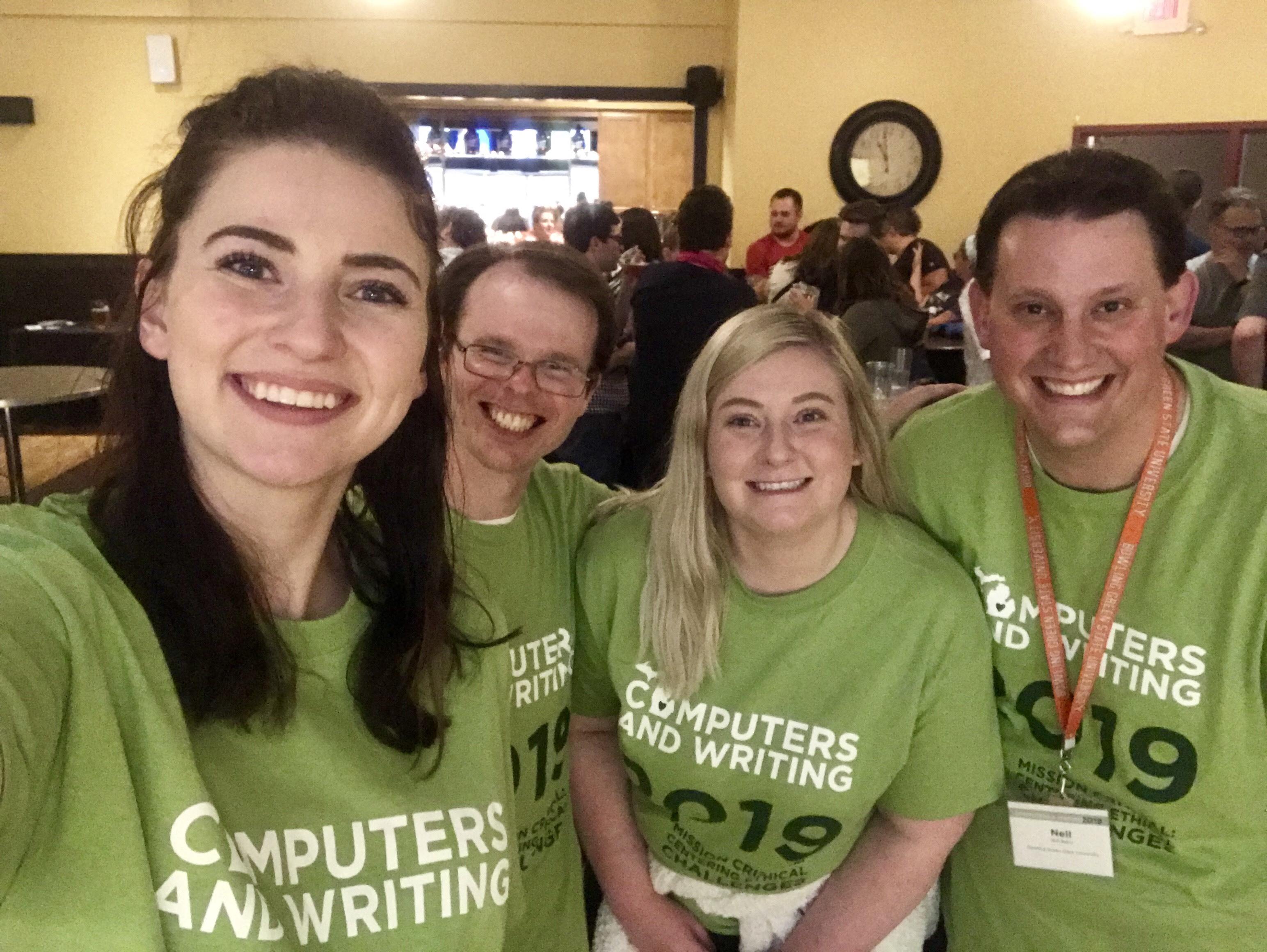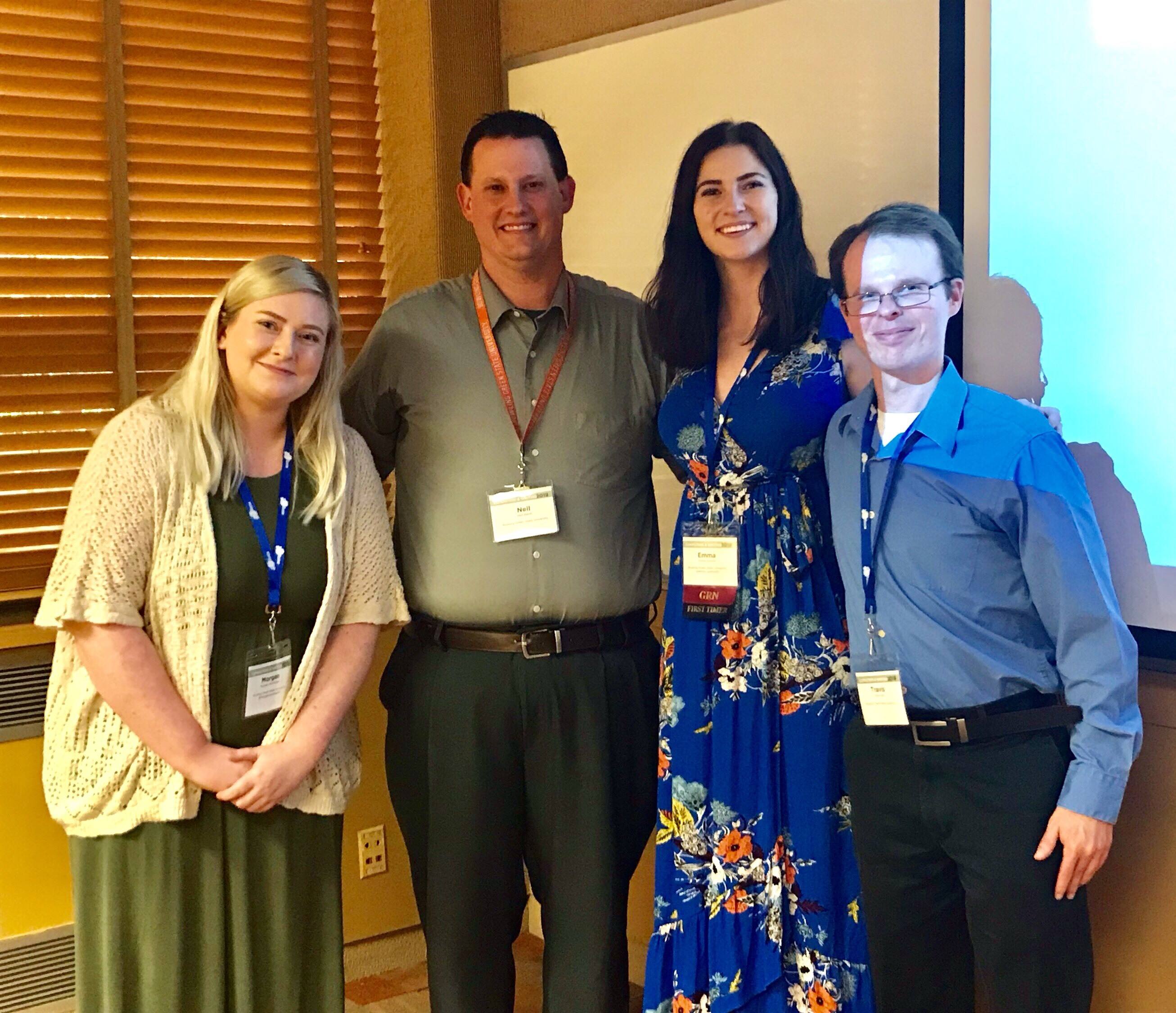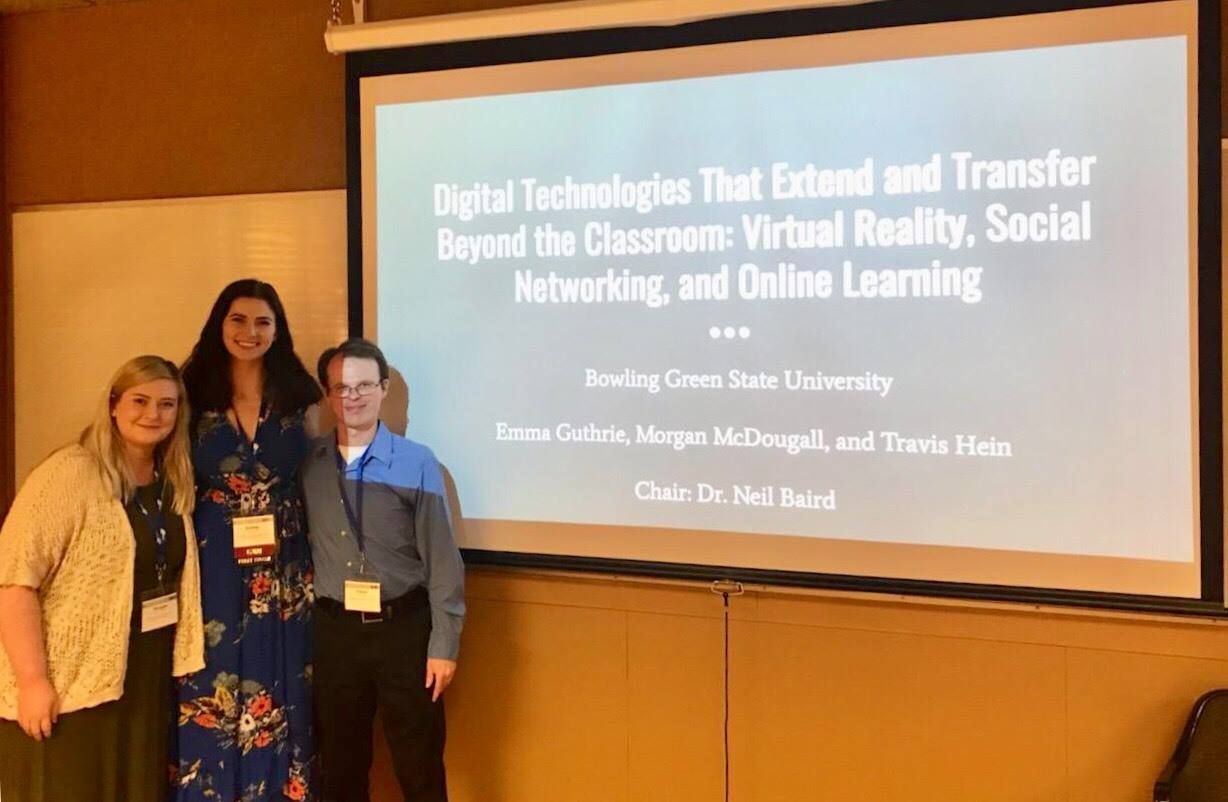Second-year Doctoral Students Present at 2019 Computers and Writing Conference


On June 21, 2019, Travis Hein, Emma Guthrie, and Morgan McDougall presented at the 2019 Computers and Writing Conference. Their panel was titled, “Digital Technologies that Extend and Transfer Beyond the Classroom: Virtual Reality, Social Media, and Online Learning,” and chaired by Dr. Neil Baird.
Their panel explored many of the research interests held by each individual. As explained in their abstract: “As instructors, it is also important that we continue developing our knowledge of computer technology and tools to make sure that our courses are accomplishing the most that they can; whether that means integrating assistive technology, teaching for transfer, or supporting online civic engagement. This panel focuses on how digital technologies may be used to help instructors reach beyond the constraints of a classroom space in an effort to accommodate all students, including those with learning disabilities and those in non-traditional learning spaces.”
Travis discussed the potential use of the Insta360 VR Camera in bridging the divide between online and face-to-face learning in writing classrooms. Through a thorough background on the product, a demonstration of its video capabilities, and an in-depth exploration of both the benefits and limitations of the product, Travis provided audience members a list of things to consider when merging the online and physical.
Emma focused her presentation on the ways in which students perceptions of writing do not necessarily match with instructor perceptions of writing. She explained that, in her classroom, most students did not identify themselves as ‘writers.’ After continued discussions, Emma helped her students recognize that the writing that they were already completing on a daily basis — posting on a Twitter, Facebook, and TikTok — was indeed writing and should be valued as such. She concluded her presentation with a discussion of the Google Docs Journals that she assigns within her classroom in order to help her students bridge the divide between what they consider to be ‘academic’ and ‘not academic’ writing. The elements of writing for social media — collaboration, accountability, and self reflection — can be transferred into students’ writing assignments and projects to mimic what attracts them to writing for social media, and help students gain a further understanding of the rhetorical situations they write for in both academic and personal life. Additionally, Emma shared a syllabus that she created, which focused on the combined Social Media-Academic Writing approach to teaching an upper-level writing course.
Morgan explored the possibility of an adaptation of the Teaching for Transfer framework that is proposed in scholarship by Yancey, Robertson, and Taczak. By following the three primary components of the TFT framework — teaching key terms, reflection, and a Theory of Writing — she proposed the possibility of adapting the content of the framework to fit a Habits of Mind curriculum. Using the Habits of Mind as key terms, exploring and apply them in depth, and theorizing them, Morgan believes can help students form the generative dispositions necessary for success in post secondary writing. Her presentation concluded with discussion of an open-source Canvas sure that she created to demonstrate her adaptation.

Updated: 07/09/2019 02:55PM

